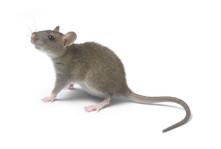
Ethical Guidelines for Authors
Authorship: Upon submission of a manuscript, the submitting author must confirm that all co-authors have agreed to its submission for publication. The corresponding author(s) accept(s) to take the responsibility for having properly included all (and only) co-authors, namely, only researchers who have contributed significantly to the work.
The (main) corresponding author signs an 'open access license' on behalf of all the authors. Any change in authorship after initial submission must be approved by all authors and justified to the Editor-in-Chief via a confirming letter from the author whose name is being deleted.
If there are more than 10 co-authors on the manuscript then a statement must be provided by the (main) corresponding author indicating the contribution of each co-author.
The (main) corresponding author is solely responsible for communicating with the journal and for managing communication between co-authors. For instance, the galley-proofs of an accepted manuscript are only sent to the (main) corresponding author, who circulates them to all co-authors and copes with the Editorial Office.
The (main) corresponding author is responsible for the accuracy of all content of the galley-proofs; in particular, the spelling and format of all co-author names, affiliations and funding information should be checked very carefully as this information is very important for a correct indexing of the article.
After publication, the (main) corresponding author is regarded as the point of contact for any queries about the published paper, and is responsible for informing all co-authors. The (main) corresponding author should ensure that any matters arising are dealt with promptly.
The name(s) and e-mail address(es) of the corresponding author(s) is(are) published in the paper.
Code of conduct: the appropriate behaviour and obligations of a scientist towards colleagues and the public implies the acceptance of a 'code of conduct', whose aim is to maximize the benefits of scientific research to the profession and society. The sharing of knowledge is obviously required for the advancement of science.
The association Science2 publishes scientific research in its journals with the objective to serve the scientific community and society. This activity relies on the responsibility of the authors, editors and reviewers for maintaining high ethical standard in relation to the publication of manuscripts.
In cases where these guidelines appear to be breached, Science2 will consult the code of conduct and best practice guidelines of the Committee on Publication Ethics (COPE) and act accordingly.
Conflicts of interest: any significant conflict of interest that authors, reviewers or editors may have should be notified to the Editorial Office of Chemistry2, which will take the appropriate action, like adding a declaration of an author’s conflict of interest to a published article or disqualifying a reviewer. Possible conflicts are:
- Financial: any current or expected financial interest in any organization that may in any way gain or lose financially from the publication of a manuscript should be mentioned to the editors, authors and reviewers. For instance, the employment by an organization, funds for a staff member, consulting fees, stock or shareholdings or patent interests may represent a conflict of interest, which should thus be stated.
- Other interests: any conflict of interest that would be embarrassing when publicly disclosed may be communicated confidentially to an editor, author or reviewer; this includes: (i) a close relationship with, or a strong antipathy to, a person whose interests may be affected by the publication of the article, (ii) an academic link or rivalry with somebody whose interests could be affected by the publication of the article.
- Proposed reviewers: authors may recommend suitable, expert reviewers upon submission of a manuscript. However, the following points should be taken into account when doing so:
- a close collaborator or colleague should not be recommended as potential reviewer;
- a proposed reviewer should not be at the same institution as any of the authors of the submitted manuscript;
- wherever possible, the institutional email addresses of the proposed reviewers should be provided.
The COPE ethical guidelines for peer reviewers can be consulted for further guidance on avoiding potential conflicts of interest during the peer review process.
Conflict of interest statement: A Conflicts of interest statement is required for all submitted manuscripts. If no conflicts exist, then the sentence 'The authors declare there are no conflicts of interest' should be mentioned under a 'Conflicts of interest' heading before the Acknowledgements; see How to prepare your manuscript.
Authenticity and Professionalism:
- All manuscripts submitted to Chemistry2 must describe original research. It is thus expected that submitted and published manuscripts do not contain scientific fraudulence, such as fabricated or manipulated data, plagiarized material (including self-plagiarism), omission of important references, incorrect statements of priority, 'hidden' multiple publication of identical data or inappropriate authorship. Plagiarism will be checked for all manuscripts received, using DupliChecker.
- If authors use figures or/and schemes from the literature, appropriate permission from the corresponding publishers should be provided, in accordance with copyright law. All sources of published work should be disclosed by giving correct reference and citation to it.
- Authors should not use information obtained privately, for instance through a conversation with a colleague, without permission from her/him. Authors should also not use information obtained when performing a confidential service, such as reviewing a manuscript.
- Any atypical hazards regarding the use of reagents, procedures or equipment in relation with the investigation presented should be clearly indicated.
- The manuscript should not contain any personal criticism; any defamatory or actionable material cannot be accepted. However, scientific work may be criticized if it is properly justified.
Papers may be withdrawn (post publication) if any sign of scientific misconduct is detected. In such a case, the corresponding APC will not be returned (as it would have been reverted back to Science by providing training grants to young researchers).
Publication of related works (see also Journal Policy):
- The authors should avoid any unjustified fragmentation of the research into multiple reports. Hence, editors can reject submitted articles on these grounds (see Aims & Scope).
- Redundant publication is not allowed; hence, authors should not use identical hypothesis, data, discussion points, or conclusions in two or more manuscripts without full cross reference. Previous publication of an abstract of a conference proceedings does not preclude subsequent submission for publication; however, full disclosure should be made at the time of submission.
- the publication of related manuscripts in Chemistry2 is encouraged.
- the authors should inform the editor about any related manuscript(s) under consideration for publication in another journal(s); copy(ies) of this(ese) manuscript(s) should be provided on submission of their current manuscript. Furthermore, the status of this(ese) manuscript(s) should be stated.
- The same manuscript cannot be simultaneously submitted to different journals. A full paper can be submitted for publication subsequent to a communication; however, the editor should clearly be informed about it.
Funding Information: Accurate funding information should be provided. The clear acknowledgement of a funding body increases the chances of securing future funds. Furthermore, this information helps to increase transparency in research funding. The funding sources will be registered in the Funder Registry of Crossref, and will be publicly available.
In the acknowledgements section of the article, the following information should be provided accurately:
- Name of funder and of sub-organisation (if necessary).
- All related grant/award numbers should be given accurately, in brackets after the funder´s name. Multiple grant/award numbers may be provided for each funder.
Animal and Human Welfare: When animals or human beings are used as research subjects, the authors must clearly include in the section 'Materials and Methods' of the manuscript a declaration stating that all experiments were carried out in compliance with the relevant laws and institutional guidelines. Furthermore, the institutional committee(s) that has(ve) approved the experiments should be mentioned (see How to prepare your manuscript). A clear statement that informed consent was obtained for any experimentation with human beings is mandatory. Reviewers may be requested to assess critically any cases in which concerns arise.









